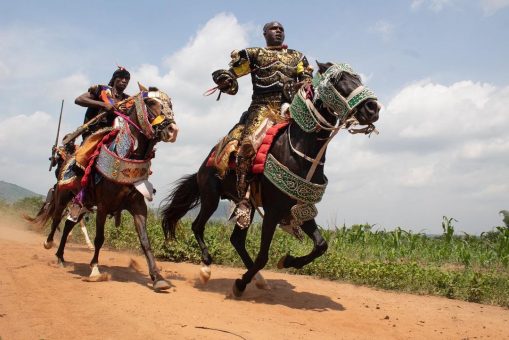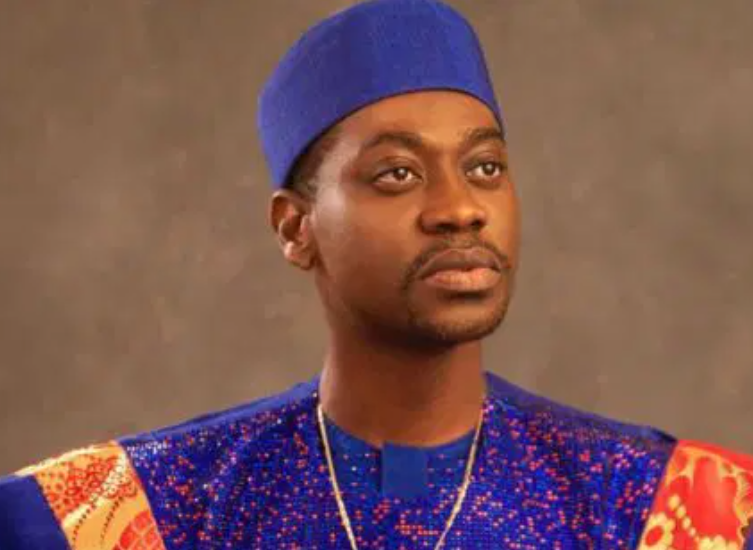Why Oyo's Culture Dominates Yoruba Movie Themes

Yoruba films and Oyo obsession
Sir: With ambitious historical epics that garner both critical acclaim and cultural pride, Yoruba-language films have made a strong debut on the international scene in recent years. From "House of Gaa" to "Elesin Oba," and from "Aníkúlápó" to "Jagun Jagun," the focus has often been on one recurrent character—not a person, but a location: the historic Oyo Empire.
Even the Hollywood film "The Woman King," which was based on the "Dahomey Amazons," was unable to withstand Oyo's powerful influence. Additionally, another battle epic based in Oyo is currently playing out on screen with the premiere of "Kabiyesi" on Africa Magic.
Even the Hollywood film "The Woman King," which was based on the "Dahomey Amazons," was unable to withstand Oyo's powerful influence. Additionally, another battle epic based in Oyo is currently playing out on screen with the premiere of "Kabiyesi" on Africa Magic.
Did you know? You can comment on this post! Just scroll down
Some movie enthusiasts are beginning to ask: Must every Yoruba epic lead us back to Oyo? The question is fair. But so is the answer many historians and cultural custodians would offer: Yes—because Oyo was not just a kingdom; it was an empire. At its peak between the 17th and 19th centuries, Oyo dominated much of present-day Western Nigeria and extended its political, military, and economic influence into modern-day Benin and Togo. It commanded vassal states, shaped regional trade, waged monumental wars, and institutionalised a governance system that still intrigues scholars.
To depict Yoruba history without touching Oyo is akin to retelling the story of Rome and skipping Caesar. Or documenting Greek mythology while ignoring Mount Olympus.
Even stories centered elsewhere often find their narrative arc intersecting Oyo’s domain. The ‘Lisabi’ story, an Egba tale of heroism, gains full resonance only in the context of resistance against Oyo’s overreach. The ‘Woman King,’ though primarily focused on Dahomey, couldn’t help but portray its fraught relationship with Oyo overlords.
In that context, Oyo is not overexposed—it is underexplored. The truth is, Yoruba cinema has barely scratched the surface of Oyo’s storied past. Entire chapters of its influence remain untouched on screen—the famed Kiriji War that saw Ekiti-Parapo rise against Ibadan, the final heir of Oyo’s military culture; the rise of Ibadan war generals like Balogun Oderinlo and Lagidigba; and the compelling command of Basorun Gaa, whose ruthlessness redefined Oyo politics.
What about the Kakanfo tradition—Aare Ona Kakanfo, the Empire’s highest military title, carried by fierce warlords like Toyeje, Oluyole, and later, Samuel Ladoke Akintola?
What about the secret diplomacy between Alaafin Abiodun and colonial agents? The spiritual authority of the Alaafin not just as king, but as the imperial oracle whose command determined life and death across the land? There is still much to tell.
However, the growing concern about over-concentration on Oyo does not come from ignorance—it often comes from a yearning for balance. Yoruba land is vast, spiritually layered, and ethnically intricate. Each sub-group has its stories, customs, heroes, and battles waiting to be told.
What of the mystery-laden Eyo Festival in Lagos, with its white-robed masqueraders and regal processions? The tale of Ajagunla, the Igbómìna warrior whose conquests reshaped Eastern Yorubaland? Or the ancestral journey of Odùduwà’s grandchildren, who scattered across the region to found great kingdoms—Alára, Ajèró, and Òràngún?
The exile and deification of Sàngó, the warrior-king who became thunder; the sacrifice of Queen Moremi, whose bravery saved Ifè; or the resistance of Oba Esugbayi, who challenged colonial power in Lagos—these are not side stories; they are cinematic goldmines.
Other under-explored epics include the rise of Òsun-Òsogbo and her first priestess, the bitter Jalumo war, and the establishment of Kétu by the Ànàgó, custodians of Yoruba identity in modern-day Benin Republic.
Yoruba heritage is a forest of stories—Oyo is the tallest tree, but not the only one. It is the case of “One Story, Many Branches.” Still, the dominance of Oyo narratives should not be mistaken for creative laziness. When European filmmakers return repeatedly to Ancient Greece or the Roman Empire, audiences rarely complain. Spartans, Caesars, Trojan heroes, and gladiators have lived on screen for decades.
Likewise, Middle Eastern history often centres on Persia or Babylon. North African history leans on Ancient Egypt. When it comes to the Yoruba story, Oyo is our historical equivalent—a central axis around which many other stories rotate.
The key, perhaps, lies not in abandoning Oyo, but in telling its stories with deeper nuance while interweaving the histories of other Yoruba kingdoms. Yoruba filmmakers today stand at a powerful threshold. They’ve earned local loyalty and global recognition. Now, they can take bolder steps: to amplify lesser-known heroes, explore spiritual origins, and reimagine ancient conflicts through fresh lenses.
The stories are here. The audience is ready. And the culture is rich enough to carry generations of epic films. Let Oyo continue to shine—but let the light spill generously across the vast canvas of Yoruba civilisation.
Article Posted 1 Day ago. You can post your own articles and it will be published for free.
No Registration is required! But we review before publishing! Click here to get started
One Favour Please! Subscribe To Our YouTube Channel!
468k
Cook Amazing Nigerian Dishes, Follow Adorable Kitchen YouTube Channel!
1.1m
Like us on Facebook, Follow on Twitter
React and Comment
Click Here To Hide More Posts Like This
Watch and Download Free Mobile Movies, Read entertainment news and reports, Download music and Upload your own For FREE.
Submit Your Content to be published for you FREE! We thrive on user-submitted content!
But we moderate!

















